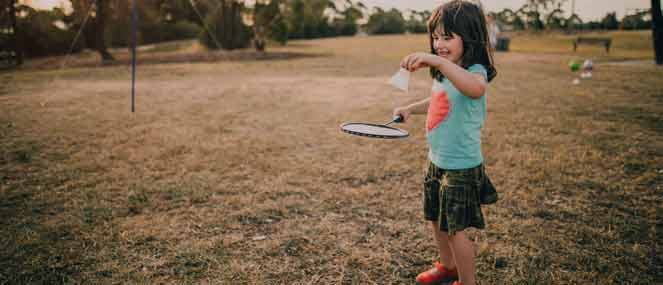
- Health hub/
- Tips & Advice on Cold, Flu & Boosting Immunity/
- Supporting Your Child's Immune System


A child’s immune system is still developing
Among the many differences that exist between kids and adults, one is the nature of our immune systems. A good example is the fact that while adults usually get between two and four colds a year, children can get as many as 10 in the same time frame, simply because they aren’t immune to the 200-plus different viruses that cause colds.
Different types of immunity
We’re all born with some natural immunity called ‘innate immunity’ – for example, the skin acts as a physical barrier to germs, and mucus traps bacteria and small particles.
There's also something called ‘passive immunity’, which is borrowed from another source and only lasts for a short time, such as the antibodies that breast milk contains and are passed from mum to bub. These antibodies give a baby temporary immunity to diseases their mum has been exposed to.
But it’s something called ‘adaptive immunity’ that evolves throughout our lives and takes time to become fully developed.
At what age is a child’s immune system fully developed?
The immune system continues to develop and change as we age, evolving from an immature and developing immune response in infants and children, through to immune function that’s typically optimal in adolescents and young adults.
Five ways to support your child’s immune system
This handful of strategies can help you support your child’s immune system health, particularly during times when it might need a little extra helping hand.
1. Make sure they get enough sleep. A lack of it affects the body’s ability to produce things called cytokines, which are proteins that help fight infection and reduce inflammation. Ideally, every 24 hours, children who are:
- Up to 12 months of age need 12 to 16 hours sleep
- Between one and two need 11 to 14 hours sleep
- Between three and five need 10 to 13 hours sleep
- Between six and 12 need nine to 12 hours sleep
- Between 13 and 18 need eight to 10 hours sleep
2. Encourage a healthy diet.It’s the simplest way to ensure that your child is getting enough of the vitamins that play a crucial role in maintaining good health and a healthy immune system.As well as explaining to them that eating nutritious food is good for their immune health, ask them to help you cook and prepare meals, because research shows that kids who do that are more likely to eat and enjoy fruit and vegetables. There are even a variety of healthy snacks that kids can make for themselves.
Another great way to encourage healthy eating is to use vegetables as a healthy swap for family favourites like our super popular green sausage rolls. And check out the recipes in our collection of healthy recipes made especially for kids.
3. Look after their gut health. Research has demonstrated the link between gut health and the development of a healthy immune system during childhood. A few simple tweaks to their diet, including high-fibre and fermented foods, can be an effective way to support your kid's gut health.
4. Help them stay active. It’s well known that exercise can help to maintain the immune system’s , so encourage your children to move more. It doesn’t even have to be in the form of structured exercise or playing sport. While those things definitely count as physical activity, so does dancing, splashing around in the pool, and enjoying active play and games. Any activity that involves moving their body is considered ‘exercise’.
5. Teach them some good hygiene habits.While it’s not possible to completely prevent or avoid viruses, there are things you can teach your kids to do – and not do – in order to help them stay well and support their immune system health.
Here are three key things to teach them.




